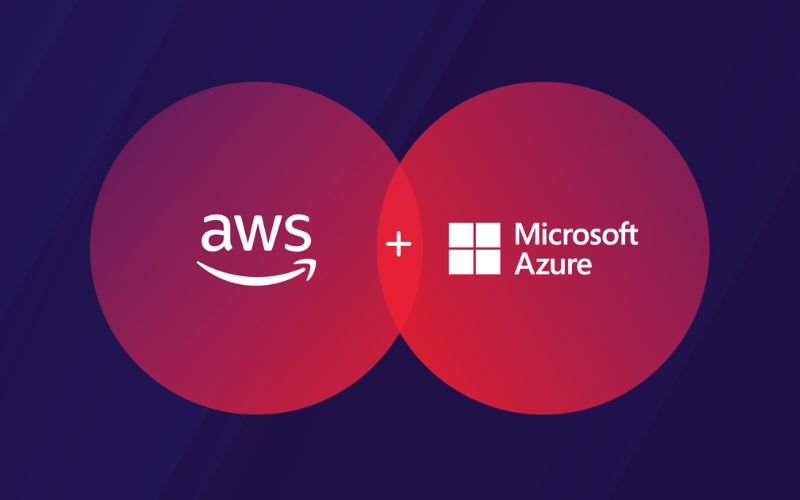In this guide on “AWS Solutions Architect Associate Benefits for Analysts”, IT Exams will explore the advantages of this certification, including a comprehensive understanding of cloud technologies, increased employability and earnings potential, expanded professional networks, and benefits for an analyst’s employer. Whether you are looking to expand your knowledge, enhance your skills, or improve your career opportunities, this guide will provide valuable insights into how AWS Solutions Architect Associate certification can help you achieve your goals.
Who Is An AWS Architect?

An AWS Solution Architect (SA) is someone who has earned the AWS Solution Architect Certification. AWS Solutions Architects develop cloud solutions in the same manner that architects design physical structures. They assist firms in meeting business objectives by designing the most efficient system feasible. They also work with other AWS project teams to ensure that the solution is properly deployed. AWS Solutions Architects are also in charge of monitoring the performance of the solution and addressing any issues that may develop.
On this website, we have hundreds of free AWS Solution Architect Associate exam questions to help users easily pass their exams on the first attempt!
Skills And Characteristics Of An AWS Solution Architect
“I want to become an AWS Solution Architect for it offers a lot career benefits but I do not know how to become a solutions architect?” These are non-technical abilities that will assist AWS Solutions Architects in excelling in their jobs.
- Adaptability and a desire to learn: Architects of solutions must be ready to adjust to altering priorities. Finding the solution to a business challenge necessitates ongoing learning about evolving technologies and best practices. Because cloud computing and technology are ever-changing disciplines, the Cloud Architect must be eager to learn and adapt to new trends.
- Time Administration: Projects in information technology are frequently time-sensitive. Building infrastructure to fulfill deadlines necessitates exceptional time management.
- Communication Abilities: End users, as well as internal and external stakeholders, must be communicated with by an AWS Solutions Architect. To handle the organization’s commercial problems while designing and creating user-friendly technologies, great communication and interpersonal skills are required.
- Problem-Solving Aptitude: Solution architects tackle business challenges by utilizing software and hardware. Designing and deploying cloud infrastructure and apps needs not just technical understanding but also commercial savvy.
- Teamwork and interpersonal abilities: IT professionals must be able to interact with individuals in their departments as well as other departments within the firm. Working as a cohesive unit makes activities flow more smoothly, deciding project success.
- Analytical Capabilities: Conducting system analysis and being able to build solutions to corporate objectives are crucial abilities. An AWS Solutions Architect must be able to assess the client’s present system, take the project requirements, and create a scalable and useable solution.
- Decisiveness: An effective Cloud Solutions Architect can confidently communicate offered solutions to stakeholders, offering clear direction for their decisions. Solutions Architects design and create safe, scalable, cost-effective, and resilient applications and infrastructure. An AWS Architect successfully explains and offers solid solutions that fulfill project requirements.
Primary Processes Covered by Solution Architecture

Teams may build products within the appropriate time and price restrictions with a well-built solution architecture. It also assures that the problem’s solution is exactly what it needs to be. Solution architects are responsible for the following tasks:
- Creating solutions based on the business environment: In most cases, businesses already have an information context, integration needs, and operating systems in place. The solution architect must ensure that the new system is compatible with the existing system environment. To do so, they must understand how various components of a business model, such as operating systems, application architecture, and procedures, interact. They will be able to create the optimal solution for the environment if they grasp these procedures.
- Meeting the needs of stakeholders: Meeting the needs of stakeholders is a particularly difficult area of software product development. A product typically has a large number of technical and non-technical stakeholders. The goal of solution architecture is to ensure that all of their criteria are met. Stakeholders must be kept up to date on the methods, budgets, and costs of product development. A solution architect accomplishes this by translating the project’s technical specifics into a language that non-technical stakeholders and management can comprehend.
- Considering the project constraints: A project is always bound by some restrictions or constraints, such as:
- technology
- scope
- risks
- cost
- time
- quality
- resources
For example, the technology utilized to construct a product should meet the needs of its modules. The scope of a project is defined by its software documentation, which contains its goals, features, functions, and tasks. Every project is also given its own budget.
These are project limits with their own set of limitations. A solution architect must comprehend all restrictions and compare them in order to make administrative and technological options in accordance with the project objectives.
- Choosing the project’s technological stack: The selection of appropriate technology for product development is a critical responsibility done by solutions architects. The chosen technology stack has a direct impact on the technical architectural strategy. There are several approaches to platforms, tools, and programming languages. A solution architect’s role is to determine which of these techniques is best suited to the project. It is a difficult undertaking that necessitates examining and comparing technologies.
- Complying with non-functional needs: A software project must also fulfill non-functional criteria. Quality attributes are the requirements that describe the system characteristics. Non-functional needs might vary depending on the product’s complexity. A product’s security, maintainability, performance, usability, dependability, and scalability are all frequent needs. The solution architect analyzes all of these non-functional criteria to ensure that the product engineering satisfies these needs.
Primary Roles Of An AWS Certified Solutions Architect

- Enterprise-wide system architecture examination, analysis, and design
- Stimulate suitable design discipline and tools such as IBM Rational
- Ensure that the application architecture team delivers solid system solutions to the architect’s business.
- Create, improve, and sustain established service design processes and procedures to ensure adequate and strong service design
- Collaborate with the enterprise architect to ensure that the architectural and strategy plans are followed.
- Being a member of a high-performance solution architecture team that aids in the development of a business-oriented project
- Complex company-level solution configuration planning, design, and execution
- Prepare and deliver a test plan, lab reports, technical presentations, and analyst briefings to cover various solution areas.
- Be in charge of the finest current practices and proposals.
- Collaborate with the IT development team to ensure that the architectural solution is appropriately translated into a robust and successful implementation.
- Ensure that configuration management continues in the proper manner
- Identify client needs, analyze alternatives, and make product recommendations for platform, software, and network setups
- Work with the sales department to provide demonstrations and discuss requirements.
- Make contact with the customer to begin a collaborative endeavor.
Primary responsibilities:
- Understand the company’s needs in order to define system specs
- Structure of the technological solution planning and design
- Communication system requirements to the software development team
- Evaluation and selection of appropriate hardware or software, as well as integration techniques
- Supervise assigned programs and advise team members
- When technological difficulties emerge, support is provided.
- Ensure that the agreed-upon infrastructure and architecture are put in place
- Take care of technical issues, recommendations, and ideas
- Monitor systems to ensure that they fulfill both business and user needs
When Is Solution Architecture Needed By a Company?
Technology consulting businesses may include solution architecture into the company structure if the software system integration process is not methodical. A solution architect is not required for all projects. There is no need for a solution architecture if a single established technology module is employed. However, when projects get more complicated, introducing additional risks and procedures, solution architecture services should be considered. When you need a solution architect:
- It is unclear whether the option is better suited to the firm ecosystem: It is critical that there be a connection between a specific project and corporate architecture. Solution architectures ensure that the solution meets the company’s environmental criteria.
- A digital transformation project is now underway: Projects involving digital transformation necessitate a rethinking of what and how firms provide to customers. It is impossible to do without connecting business and technology requirements, which is what a solution architect performs.
- There are several hazards involved: A solution architect is required in projects that contain various technological risks, unknown requirements, the execution of many products, or the use of prohibited underlying technology.
- Investors must be shown a potential product: In this instance, solution architects can assist in recommending appropriate technologies to meet production needs. They also communicate in a commercial language that is straightforward and understood.
- Engineers and stakeholders must establish communication channels: A communication gap may exist between a non-technical and a technical professional. Solution architects assist in bridging that gap.
Several teams are involved in the project: Larger projects require someone to manage the design, business, or technical architect teams in order to provide great results.
AWS Certified Solutions Architect Salary

The average yearly income for an AWS solutions architect is $121,311 according to PayScale’s research (updated on March 10, 2022). The AWS solutions architect salary ranges from $77,000 to $163,000, with an entry-level salary of $77,000 on average. With average yearly incomes of $144,000 and $132,000, the highest-paid solution architects work in San Jose and San Francisco.
Early in their careers, solution architects earn $94,000 per year. As a person moves through the mid-career period, their annual compensation climbs from $115,000 to $137,000 on average. According to PayScale, the average yearly salary for solutions architects with more than 20 years of expertise is $135,000 per year.
On average, an entry-level solutions architect with one year of experience (or less) can expect to earn $75,997. Based on 771 salaries, the average total compensation for a solutions architect in their early years of work is $95,542. A solutions architect in their mid-career with five to nine years of experience earns an average total compensation of $117,792. On average, someone with 10 to 19 years of experience earns $130,519 a year. Employees in the last years of their employment (20 years or more of experience) receive an average total compensation of $137,822.
Aspiring AWS professionals should be aware of two important pay trends:
- AWS Certified Solutions Architect – Associate Salary: An AWS professional can be certified as an Associate or a Professional. The yearly average salary for this position is $117,000.AWS Certified Solutions Architect – Professional Salary: Senior experts with this degree frequently make significantly more. The average annual salary for this group is roughly $135,000 per year.Professionals with the job title solutions architect make 17.7% more than the national average in San Francisco, California. These positions also pay more than the national average in New York, New York (4.4% higher) and Austin, Texas (3.5% higher).
Among the top answers for the post of solutions, architect are Amazon.com Inc, Slalom Consulting, and Deloitte. Microsoft Corporation had the highest reported earnings, paying an average of $149,845. IBM and Amazon are two additional firms that provide competitive pay for this position, with salaries ranging from $138,175 to $141,373. The least profitable company is EMC Corporation, which pays roughly $114,705. With rewards of $121,293 and $130,001, respectively, Deloitte and Cisco Systems Inc are similarly at the bottom of the spectrum.
AWS Solutions Architect Associate Benefits For Analysts

For analysts wishing to improve their careers in the cloud computing business, the AWS Solutions Architect Associate certification is a significant asset. This certification verifies that the bearer possesses the knowledge and competence required to effectively build, install, and manage applications on Amazon Web Services (AWS).
One of the most important advantages of this certification is the possibility to have a thorough grasp of cloud technology. Analysts may obtain a greater grasp of how AWS operates, how to use its features and services, and how to develop safe, dependable, and scalable cloud-based solutions by earning the AWS Solutions Architect Associate certification.
Earning the AWS Solutions Architect Associate certification also displays an analyst’s commitment to their chosen professional path. This certification is a well-known and respected industry certificate that verifies an analyst’s knowledge of AWS products. This certification is also advantageous for employers, who can rely on their trained personnel to efficiently develop, deploy, and manage cloud-based solutions.
The AWS Solutions Architect Associate certification can also boost an analyst’s employment and earning potential. Employers are looking for people with particular skills and credentials, and having an AWS certification may help analysts stand out in a competitive employment market. Because certified analysts are acknowledged for their advanced experience and knowledge, this certification can lead to increased salary, incentives, and promotions.
Another advantage of being an AWS Solutions Architect Associate is the potential to broaden one’s professional network. Certified analysts have access to special AWS events, forums, and communities where they can network with other certified experts, share information, and keep current on the latest cloud computing trends and advances.
Finally, having an AWS Solutions Architect Associate certification can assist an analyst’s company since it allows the employee to more efficiently develop, deploy, and maintain cloud-based solutions. This might result in enhanced production, efficiency, and cost savings for the firm.
FAQs

Is the AWS solution architect Associate useful?
While there are other public cloud providers, Amazon Web Services (AWS) associate credentials are the most sought-after since Amazon has the highest market share. Having this on your CV is incredibly advantageous whether you are a hands-on engineer or a consultant by profession.
What are the 4 benefits of being AWS certified?
- Badges on the internet.
- Exam Savings.
- Recognize an event.
- AWS Global Certified Community.
What is AWS solutions architect good for?
What is the purpose of an AWS solutions architect?
AWS Solution Architects work with clients to understand their objectives and requirements, then design and develop the most efficient and effective cloud solution possible.
Can I get a job with AWS Certified Solutions Architect Associate?
Because AWS may be tough for most individuals, these training classes are vital even for persons with extensive IT skills. However, if you pass it, you will be able to work as an AWS-certified Solutions Architect in numerous firms across the world.
Final Words
In conclusion, earning AWS Solutions Architect Associate certification can provide significant benefits for analysts in the cloud computing industry. This certification can help you develop a comprehensive understanding of cloud technologies, increase your employability and earnings potential, expand your professional networks, and benefit your employer by improving your ability to design and manage cloud-based solutions. With the insights and resources provided in this guide on “AWS Solutions Architect Associate Benefits for Analysts,” you can take the first step towards advancing your skills and achieving your career goals. Remember, investing in your professional development is a wise decision that can pay off in numerous ways, and AWS Solutions Architect Associate certification is an excellent way to do so.
[Sassy_Social_Share]


